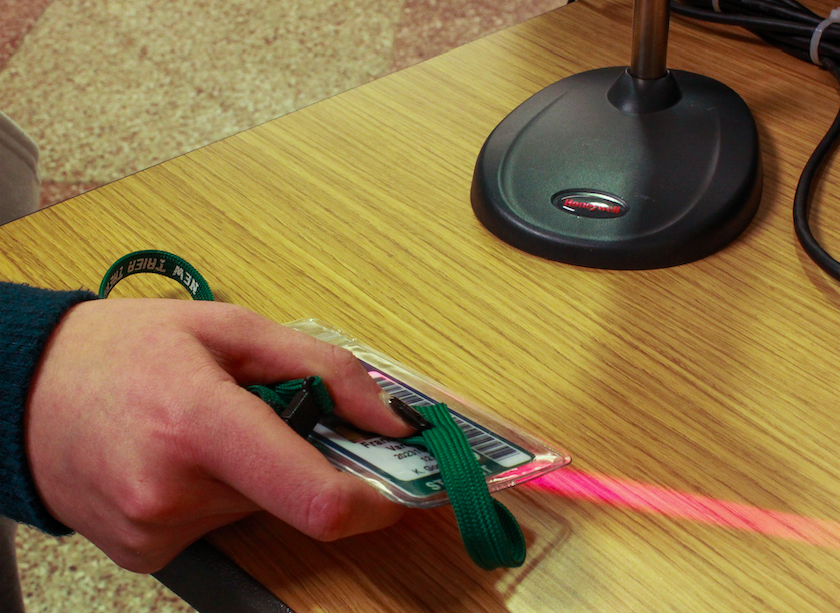High rate of detentions sparks student curiosity
Students upset with the high rate of detentions for tardies: what’s to blame?
Every day in advisery, sheets with warnings and detentions are distributed to a growing number of students. But they don’t feel like there is a change in the number of times they’re tardy from last year. If the students aren’t changing, what has?
The technical answer is nothing. If you compare the attendance policies from this year and last year, they are virtually the same. Assistant Principal for Student Services Scott Williams said the difference from this year to last year is the technology.
“I don’t think we have more strict rules. What it is, is that we’re leveraging technology in a different way. That’s why I think we have an increase in those numbers.”
Williams is referring to the ID scan-in system implemented last year. The system will mark students tardy after 8:19 scan-ins. So, if a student scans in at 8:20 or later in the advisory window (8:20-8:45) they will be automatically marked tardy in PowerSchool, which did not happen last year.
Sophomore Brigid Bachman has not received detention but has also viewed a large number of detentions and tardy warnings given to students.
“I’ve seen a lot of my friends and advisery classmates receive detention and 1st warnings way more than I saw last year. Some of them had never been to detention before this year.”
Talk of this heightened number of detentions has been recognized and addressed by Williams.
“There has been some chatter about it. I was in a meeting, doing an observation, where some students brought it up as a concern with their leader. Whenever we’re having a shift of greater accountability to be on time in this example, there is going to be some confusion, some frustration with that.”
Much of the “chatter” has been surrounding the fairness of the situation given that many students have been receiving consequences for tardiness.
Freshman Eva Merkow thinks that it is slightly unfair for different situations.
“I don’t think it’s fair because some people have different circumstances when getting to school and I think the school could be more lenient.”
While students may believe this reinforcement of the rules is slightly unfair, advisery is an important class which students should attend, says Williams.
“It is important to be in advisery which is a scheduled class period.”
Students might claim that they are in the building, but if a student is not in their assigned adviser room at when the 8:20 bell rings, they will be marked tardy. In the guidebook, it stated that this year and last year, after one tardy, a student will receive a warning. Any tardy in the quarter after the first will result in a morning detention.
Williams said that while there have been complaints by students, the school has no plans to change their truancy policy.
“Right now we’re not really looking at [changes,] we’re looking at students being on time.”







































